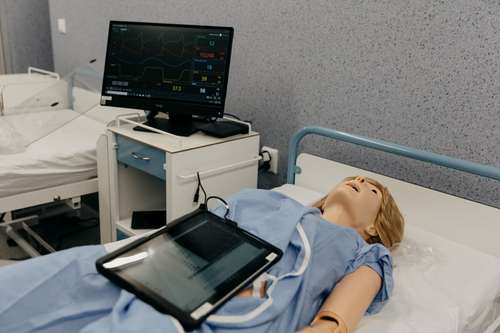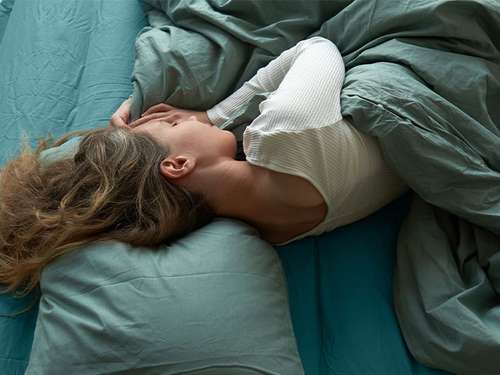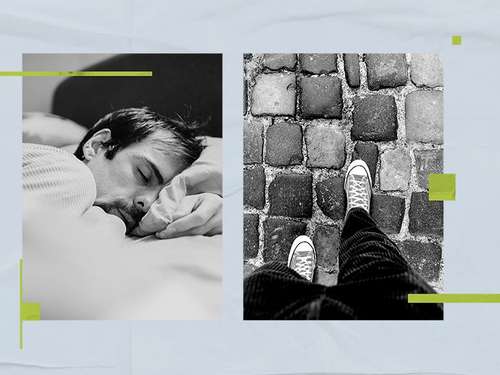In our fast-paced digital world, evenings often become a mix of catching up on emails, scrolling through social media, or watching one more episode before bed. Most of us think a little screen time is harmless, but recent Norwegian research tells a different story. Imagine losing 24 minutes of sleep for every hour spent on your digital device right before bed. That’s almost half an hour of valuable rest gone without you even noticing. It’s eye-opening, isn’t it?
It’s kind of like watching a movie only to realize you missed the best part because your mind wasn’t fully present. For many, that extra hour on the smartphone or tablet, with its glowing organic light emitting diode (OLED) screen, is simply part of a nightly ritual. But did you ever wonder why you toss and turn at night? The science behind our screens and sleep is fascinating and a bit alarming.
We’re going to break down exactly what the research says, dig into the science of blue light, and explore some practical ways to improve our nightly routine. Whether you’re battling insomnia or just trying to sleep well, this article will help you understand why those extra minutes of screen exposure can make a major difference in your rest.
The Study at a Glance
This study from Norway has already made headlines, sparking conversations about bedtime habits. Researchers found that one hour of screen time before sleep can cut sleep time by an average of 24 minutes. That may not sound like much at first glance, but it piles up over time, potentially leading to chronic sleep deficits.
The study was designed to observe the impact of screen time on sleep quality and duration. Participants were monitored under various conditions, and researchers used a combination of self-reported sleep logs and electronic sleep trackers to gather data. The controlled nature of the study meant that the difference in sleep duration could be confidently linked to screen exposure.
In addition to direct sleep time reductions, the study pointed out that screen time could also disrupt the natural production of melatonin – the body’s own sleep aid. This hormone is crucial for sleeping well, and its production is inhibited by blue light, the kind emitted by many devices. With modern screens relying on organic light emitting diode and surface mount device technology, exposure levels have only increased with time.
Experiencing 24 fewer minutes of sleep might not seem like a lot during a single night, but if you’re consistently losing sleep due to digital media renderer devices like smartphones and tablets, the effect could become a serious issue. It makes you ask: Is this trade-off worth it?
How Screens Affect Sleep Physiology
In this section, let’s dive a little deeper into why your device might be cutting into your sleep. Our bodies are designed to follow a natural circadian rhythm. The introduction of blue light in the hour before bed can shift this rhythm, making it tougher for you to fall asleep and stay asleep.
Have you ever experienced a night where you just can’t seem to get comfortable? That might be because your brain is still stimulated by the light and activity from your screen time. Blue light suppresses melatonin, a hormone that signals to your body that it’s time to wind down and prepare for sleep. Without this hormone in full swing, your natural sleep cycles get thrown off.
It’s similar to trying to reset a watch that’s been running slightly fast. Every little adjustment matters. Your brain’s perception of day and night gets blurry, which can lead to difficulty in falling asleep and staying asleep. And let’s be honest – in a world where we’re constantly connected, that extra bit of light on your digital device is like an unwanted guest that overstays its welcome.
This disruption doesn’t just affect the time you spend sleeping. Reduced sleep can influence everything from your mood to your cognitive function the following day, potentially increasing your risk for insomnia and reducing your overall alertness. It’s clear that even a little screen time before bed can have a ripple effect on your entire sleep quality.
The Impact of Blue Light: What Does It Really Mean?
Blue light is one of the main culprits behind our restless nights. It might surprise you to know that the blue light emitted by our screens is far more potent than the light coming from traditional incandescent bulbs. This kind of light signals your brain to stay alert, making it incredibly difficult to transition into a state of relaxation necessary for sleep.
The phenomenon is akin to trying to fall asleep in a room with a bright, buzzing neon sign hanging in the corner. Even if you’re trying to settle down, that constant light interrupts your efforts to relax. The digital media renderer in your device broadcasts these light frequencies that trick your brain, delaying the production of melatonin, your natural sleep aid.
Many of us use our devices without a second thought, especially when it comes to winding down after a long day. While the convenience of checking messages or catching up on bedtimestories is undeniable, it’s important to realize that the blue light you're exposed to is like a tiny alarm clock signaling your brain to remain awake. It’s no wonder you might find yourself staring at the ceiling, wondering why you cant sleep on time.
It’s not that your devices are inherently harmful; rather, it’s how and when you use them. The timing of your screen time is crucial, and small changes—like reducing exposure during the final hour before bed—can have significant positive impacts on the quality of your sleep. The study makes it clear that if you want to sleep well, managing your digital habits is as important as any other part of your bedtime routine.
Practical Tips to Manage Screen Time at Bedtime
After understanding the negative effects of screen time on sleep, you might be wondering how you can tweak your habits to get better rest. Let’s talk about some simple changes that could lead to profound improvements in your sleep pattern.
First off, consider setting a digital curfew. Decide on a time when all screens—whether it’s your smartphone, tablet, or laptop—are turned off. It might be as simple as planning to put your phone in another room 60 minutes before you hit the sack. Solid boundaries help reinforce your body’s natural cues to wind down.
Another tip is to switch to night mode on your devices. Most modern technologies, be it those governed by surface mount device technologies or even basic LED screens, now have features that reduce blue light emissions. This simple adjustment can significantly reduce the disruptive impact of blue light on your sleep cycle.
You might also consider picking up a good sleep aid, not the kind that comes in a bottle, but lifestyle changes. For instance, reading a physical book or listening to calming music or podcasts can ease that transition from activity to rest. Engaging in a calm, offline activity like jotting down your thoughts or writing down your day’s events might help your mind switch gears.
Many people find that routines or rituals, often seen in the form of bedtimestories shared among families, can also play a beneficial role in signaling the brain to prepare for sleep. Setting aside time in the evening to disconnect from digital media renderer devices might be just what you need to recalibrate your sleep cycle. Ultimately, it’s about balancing your need for connection with your need for restorative sleep.
Finally, if you’re not getting enough sleep because of screen time, you may consider using apps or devices that monitor and encourage better sleep hygiene. These digital aids help track when you’re most likely to experience insomnia. They can provide gentle nudges, reminding you when it’s time to power down and set the stage for a night of quality rest.
Long-term Effects on Insomnia and Overall Health
The short-term reduction in sleep might be the tip of the iceberg. Over time, the consistent reduction of sleep by just 24 minutes per night can lead to chronic sleep deprivation, which in turn may contribute to persistent health issues, including severe insomnia.
Think of your sleep as a bank account. Every good night’s sleep is a deposit that helps you handle the stress and demands of the next day. When you’re continuously losing deposits because of too much screen time, your overall balance dwindles. This sleep debt can affect your mood, reduce your cognitive function, and even weaken your immune system. Health problems, both physical and mental, can start piling up.
When we don’t sleep well, every part of our lives is affected. It’s not just about feeling tired; it’s about compromising the essential functions our body relies on to repair, rejuvenate, and regulate itself. For example, chronic sleep loss has been linked to increased risks of obesity, diabetes, and heart disease. Even if you think you’re just a bit tired now, the long-term health consequences are serious.
You might have noticed that some people who cant sleep because of their digital habits eventually start to experience patterns of insomnia. The cycle is vicious: the more you lose sleep, the more you rely on screens to distract you from your tiredness, which in turn makes it even harder to sleep. This negative spiral can become deeply entrenched over time, subtly eroding your overall quality of life.
In addition to physical health, mental and emotional well-being suffers as well. Sleep is essential for processing emotions and regulating stress levels. When disruptions lead to insomnia, it can aggravate feelings of anxiety and depression, making it even tougher to break the cycle. Every minute of screen time that reduces sleep is essentially a small step away from a healthier, more balanced life.
Looking Ahead: What Can We Do?
So, what’s the takeaway? While the temptation of screens is strong, the evidence is compelling: managing screen time especially near bedtime is key to protecting your sleep quality. Even simple measures, such as reducing exposure in the final hour before bed, can make a big difference.
One promising solution is the increased use of night mode and blue light filters on devices—features that are continually being improved as technology evolves. Experts in sleep science are also exploring how to design screens and devices that naturally reduce blue light emissions. Future technologies might even incorporate smart systems that adjust brightness and color temperature based on the time of day, almost like a built-in sleep aid.
Consider this: if technology can change the way we work and interact, why not use it to enhance our sleep too? By adapting our habits and the design of our screens, we can re-establish a healthier relationship with digital media. This not only benefits those battling insomnia, but also anyone who wants to sleep well and enjoy a fully recharged day.
The solutions don’t stop at personal adjustments. Policymakers and tech companies might eventually need to join the conversation. As our understanding of these issues deepens, we could see industry-wide standards regarding organic light emitting diode displays and even surface mount device technologies that regulate the amount of blue light emitted at night.
Additionally, public health campaigns could help spread awareness about the subtle yet significant impact of screen time on sleep. These initiatives can empower people with information, encouraging everyone to consider small lifestyle changes that might have a dramatic impact on long-term health.
Imagine the benefits if we all established habits that prioritize sleep—less fatigue, improved moods, and even enhanced productivity. We owe it to ourselves to fight the insomnia epidemic by taking proactive steps towards better sleep hygiene.
Embracing a Healthier Digital Balance
Establishing boundaries between digital engagement and rest is crucial for maintaining a healthy balance. We live in an era where the screen is always within arm’s reach, but mindful practices can transform the way we interact with these technological marvels.
One effective approach is creating a designated wind-down routine. This might include turning off notifications well before you plan on sleeping, dimming the lights in your home, and opting for offline relaxation techniques. In this way, you create a buffer zone that gradually signals to your brain that it’s time to transition from active engagement to rest.
Another idea is to slowly introduce analog activities into your bedtime routine. Instead of reaching for your smartphone, you might find comfort in reading a physical book or writing down your thoughts. It could also be beneficial to experiment with different sleep aid methods, such as gentle stretching or meditation, which steer you away from the computer-like glow of digital displays.
There’s a real power in small, incremental changes. Just as you wouldn’t overhaul your entire diet overnight, adjusting your bedtime habits might take time, but the payoff can be huge. Over weeks or months, these slight modifications can add up to a significant improvement in how well you sleep.
It might feel challenging at first. After all, our devices are designed to be captivating and engaging. But think of it in the same way that you manage other aspects of your health—like exercise or nutrition. Sometimes you have to make a few sacrifices or decisions that prioritize long-term well-being over short-term gratification.
This balancing act isn’t about completely eliminating screen time, but rather about using it mindfully. The key is understanding when it’s beneficial and when it might be causing harm, such as in the crucial moments before bedtime. With a little discipline and adjustment, you can essentially reclaim those valuable minutes of sleep.
Integrating Personal Stories and Experiences
Often, the best insights come from real-life experiences. Many people have noticed that reducing their screen time in the evening not only improved the quantity of sleep but also its quality. Think about the times when you might have impulsively grabbed your phone during a moment of quiet; those moments might have disrupted your entire sleep cycle without you realizing it.
Some friends have embraced a digital detox routine in the hours before bed. They’ve noticed they wake up feeling less groggy and more alert than before. Hearing these personal stories, it became clear that the screen time issue isn’t just a statistic—it’s a lived experience for many. When you hear someone say, "I finally stopped scrolling at bedtime and it changed my mornings," it resonates deeply.
These anecdotes are not isolated cases. They illustrate a broader pattern: the more mindful we are about our nighttime routines, the more likely we are to see improvements in our sleep. Integrating even minor changes like using digital media renderers in a more controlled manner or opting for devices equipped with night mode are simple yet effective adjustments.
Everyone’s experience can differ. For some, it might be about dealing with bouts of insomnia, while for others, it’s about simply trying to sleep well. These personal narratives highlight a universal truth: quality sleep is a fundamental aspect of a healthy life. The shared experiences are a reminder that sometimes, the best sleep aid is as simple as unplugging a bit earlier.
Breaking the Cycle: From Digital Distractions to Restful Evenings
In today’s interconnected world, it can feel almost impossible to break free from digital distractions. Yet, every evening offers a fresh opportunity to establish a healthier pattern. Consider this section a call to action: small changes tonight can lead to a more restful tomorrow.
The cycle of screen time leading to shorter sleep isn’t just about one night’s lost minutes—it’s a cumulative effect. Every hour that you spend on your digital device before bed chips away at your total sleep, which can exacerbate feelings of fatigue and even contribute to a growing sense of insomnia over time. Think of it as a snowball effect that gradually builds momentum until it’s too heavy to ignore.
You might be asking yourself, “How can I possibly untangle myself from the constant reach of these devices?” The answer is in incremental changes that lead to big results. Start by identifying specific triggers—maybe it's the habit of checking notifications or scrolling through bedtimestories on social media. Once these triggers are recognized, replacing them with calming habits like reading or journaling can make a world of difference.
This process is like learning to hit the pause button in a fast-forward world. Not every night has to be radically different, but consistently setting aside even a short period for unplugging can help break the habit cycle. In a way, it’s all about reclaiming control over your evenings and investing in your long-term health.
For anyone who has ever been frustrated with struggling to fall asleep, this is a tangible, relatable change. The cumulative impact of reclaiming those 24 minutes each night could eventually lead not only to better sleep but improved overall well-being. It’s a cycle that reinforces itself: less screen time means deeper sleep, and deeper sleep fuels a more energized, productive day, which in turn makes it easier to stick with healthier habits.
Conclusion: Taking Charge of Your Sleep
To wrap it up, the Norwegian study reveals a simple yet powerful fact: every hour of screen time at bedtime can reduce your sleep by nearly 24 minutes. That may seem small in a single night, but when accumulated over weeks, months, or years, it can significantly affect your health. Understanding the impact of blue light, especially from devices built with organic light emitting diode and surface mount device technology, is crucial if you want to sleep well.
By considering practical steps like imposing a digital curfew, using night mode settings on your devices, and opting for calming offline activities to replace the habitual screen scroll, you can break the cycle of digital distraction. The change doesn’t have to be drastic; small, consistent adjustments might help reduce those extra minutes lost to blue light interference and sleep disruptions.
The bottom line is that managing your screen time is not just about saving a few minutes—it’s about preserving your overall well-being. Whether you are struggling with insomnia or simply striving for a more restorative night’s sleep, taking charge of your digital habits can be the sleep aid you need. So tonight, consider putting your device aside a little earlier. Your body and mind will thank you!




